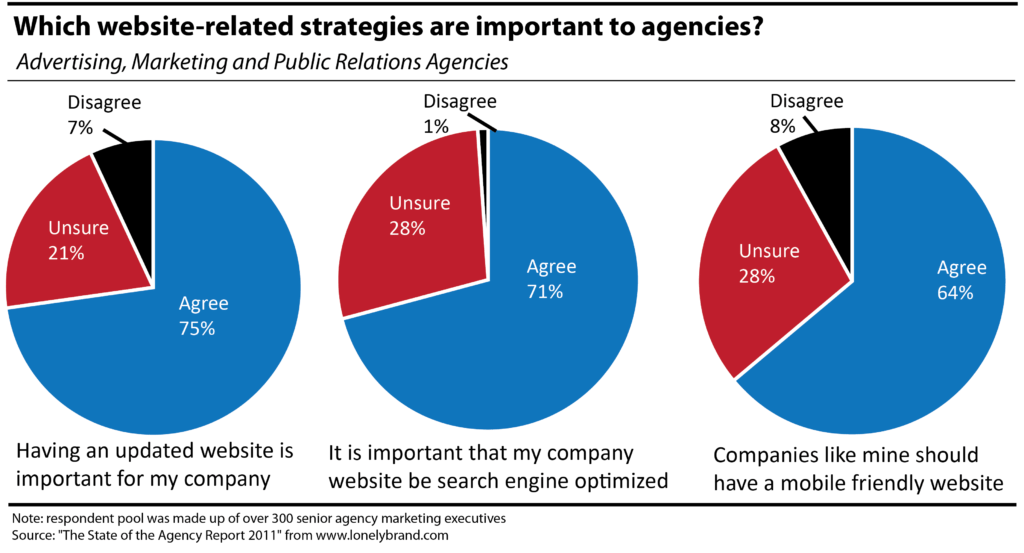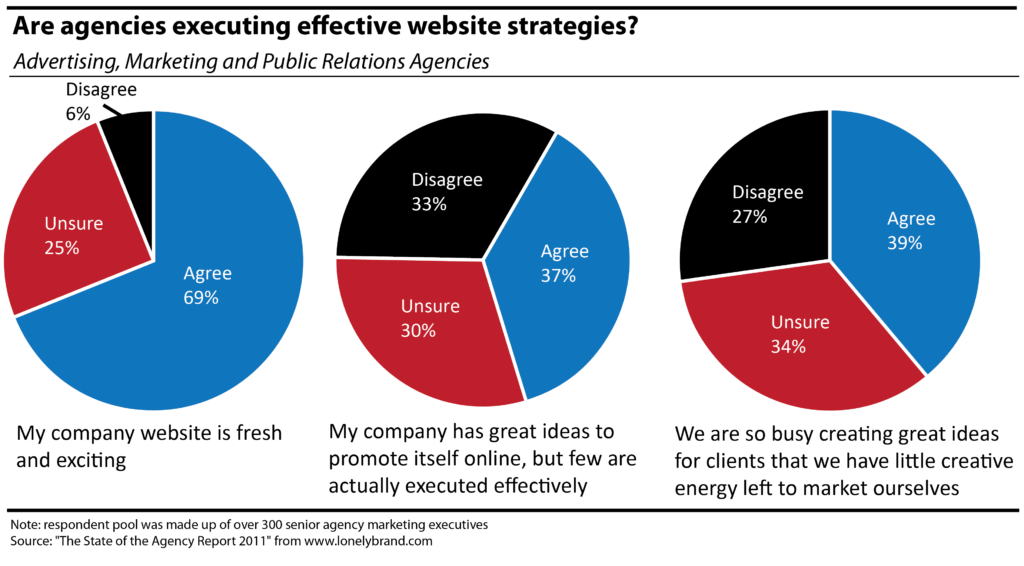There’s no denying that the B2B digital ecosystem is complex – even more so for firms that sell the intangible. Despite that complexity social media, search, CRM and a host of other entry and nurturing points require a central platform that communicates the right message to the right groups of inbound decision makers. That platform is the website – a place where all digital roads converge.
Websites are also the place to provide next steps, whether that means checking out current clients and portfolio work, downloading a new white paper or locating contact information.
We took a look at our survey of over 300 top agency executives to find out how these agencies value the components of website optimization.

It looks like most agencies value an updated website that is search engine optimized and mobile friendly.
When it comes down to it though, opinions on what is important don’t win business; thorough and timely execution do.

The numbers show that only 69% of agencies are confident in their website, and lack of time is one major cause. 37% of agency executives say their company has great ideas to promote itself online, but few are actually executed effectively. Similarly, 39% of agency heads said that their agency is so busy creating great ideas for their client that they have little creative energy left to market themselves online.
Want to start 2012 with a dynamic agency website? Here are some ideas to get you started:
- Get a plan and stick to it – Half of the battle revolves around schedule and timing. Make sure you have a complete digital program spelled out in detail and that deadlines are non-negotiable. Pretend your company is a pillar client (isn’t it the most important client of all?).
- Allocate human resources – Running a B2B agency marketing program takes time and effort. It’s not an intern’s task and it’s not something senior management does in their spare time. It’s a dedicated or outsourced full time position with real responsibility and real accountability.
- Work smarter – Use tools that are cheap and extensible to build websites that can add functionality and be updated by anyone in the company. You’ll save yourself a lot of headaches when top execs want changes made at the last second (and they always do).
- Optimize for mobile and tablet devices – There’s a good chance that users will view your website on the go. Make sure it looks great (and lose the Flash please – it’s 2012).
- Optimize for search – Better optimization means qualified traffic visiting your page. Users that find your content via search typically spend more time on site and view more content.
- Include social media links everywhere – These are easy enough to add, and provide a valuable opportunity for visitors to check out your personality. If you believe that there shouldn’t be PR and advertising agencies on Facebook, think again.
- Make the experience great – Decision makers aren’t always the most proficient tech users, so reviewing the website experience from their perspective should be paramount. Appearing too creative or conceptual may be hurting your image more than helping it.
- Freshness – With Google’s latest update, providing fresh and relevant content is more important than ever. And that means ensuring your digital marketing program generates new content all the time.